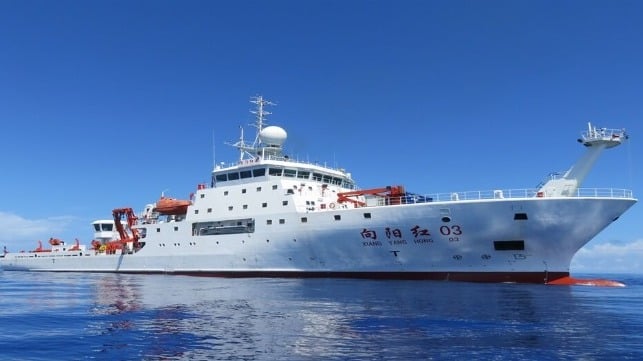Sri Lanka Phases Out Port Ban on Foreign Research Vessels

Barely seven months after imposing a one-year port ban on foreign research ships, Sri Lanka has said it will lift this restriction from 2025. During an official visit to Japan last week, Sri Lankan Foreign Minister Ali Sabry told the state-owned news agency NHK that the reversal of the ban is to ensure Sri Lanka has a neutral voice in the dispute of others.
“The government cannot have different rules for different countries and only block China. Sri Lanka will not take sides in a dispute between others,” said Sabry.
The current moratorium is in place until January, after which foreign research ships will be welcome to dock in any of the Sri Lankan ports.
In the past two years, Sri Lanka had become a favorite destination for Chinese research ships conducting surveys in the Indian Ocean. Last October, the Chinese research vessel Shi Yan 6 docked in Colombo port for several days. Sri Lanka had also permitted the vessel to operate within its territories to conduct oceanography studies. In 2022, another Chinese research vessel Yuan Wang 5 made a port visit to Hambantonta is southern Sri Lanka.
However, these research vessels are shrouded in controversy, with some analysts believing that they double as spy ships for Beijing. Based on these concerns, India and the U.S repeatedly cautioned Sri Lanka on the potential security risks of allowing Chinese research vessels within its territory.
Meanwhile, Sabry offered gratitude to the Japanese government for recently donating a research vessel to Sri Lanka. Japan finalized plans to donate the vessel around two months ago. Although details about its design were not provided, the vessel is said to be equipped with underwater sonar for detecting the location of other vessels.

that matters most
Get the latest maritime news delivered to your inbox daily.
In announcing the donation, Japanese Foreign Minister Yoko Kamikawa said the act emphasizes Japan’s position on realizing a free and open Indo-Pacific. In addition, the vessel will significantly improve Sri Lanka’s capability to conduct oceanographic studies.
Indian Ocean states such as Sri Lanka and the Maldives are increasingly playing a strategic role in the geopolitical competition by major powers vying for influence in the Indian Ocean. In the case of Sri Lanka, it is even more critical for its transshipment role along the major east-west shipping route.
